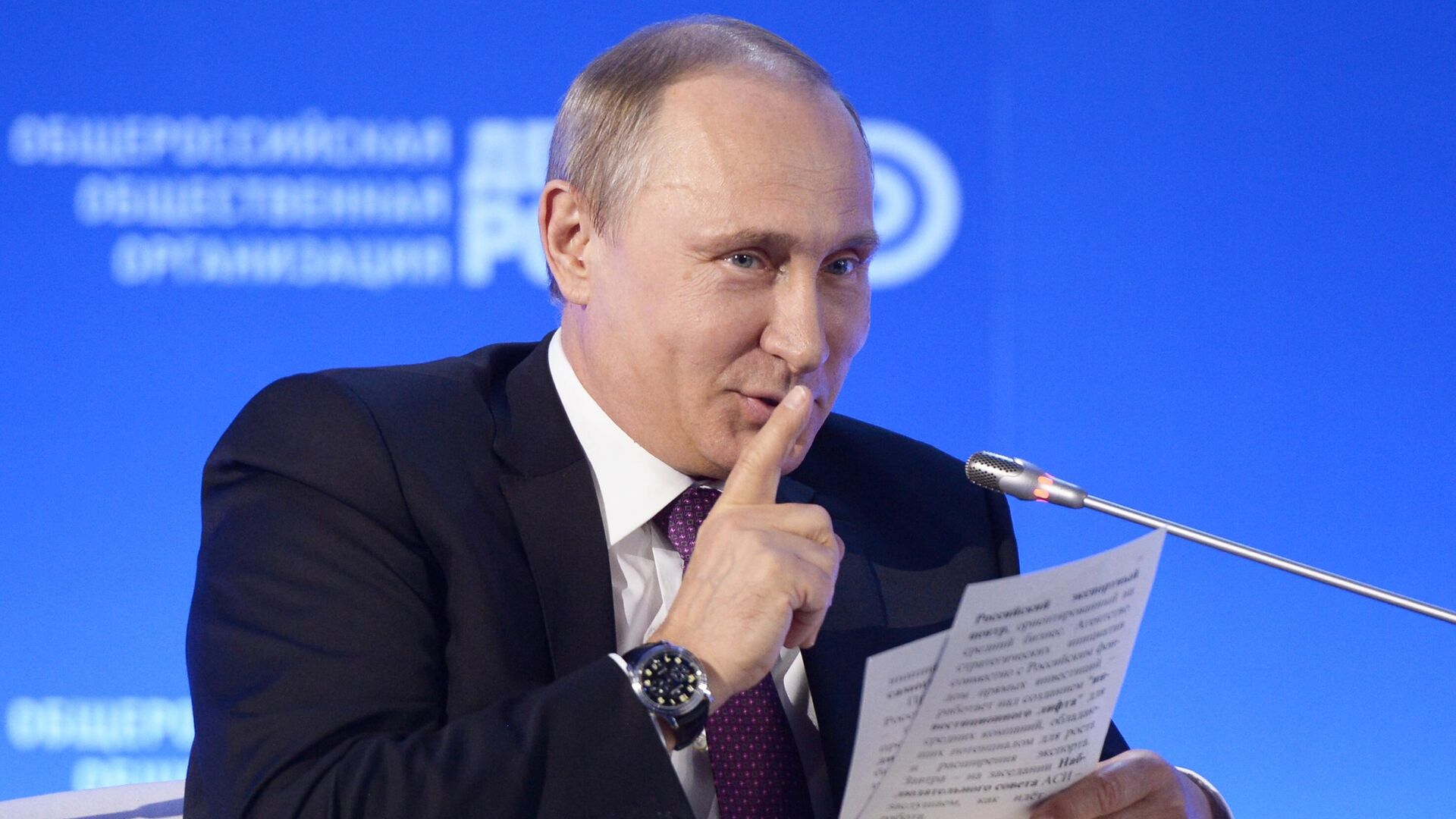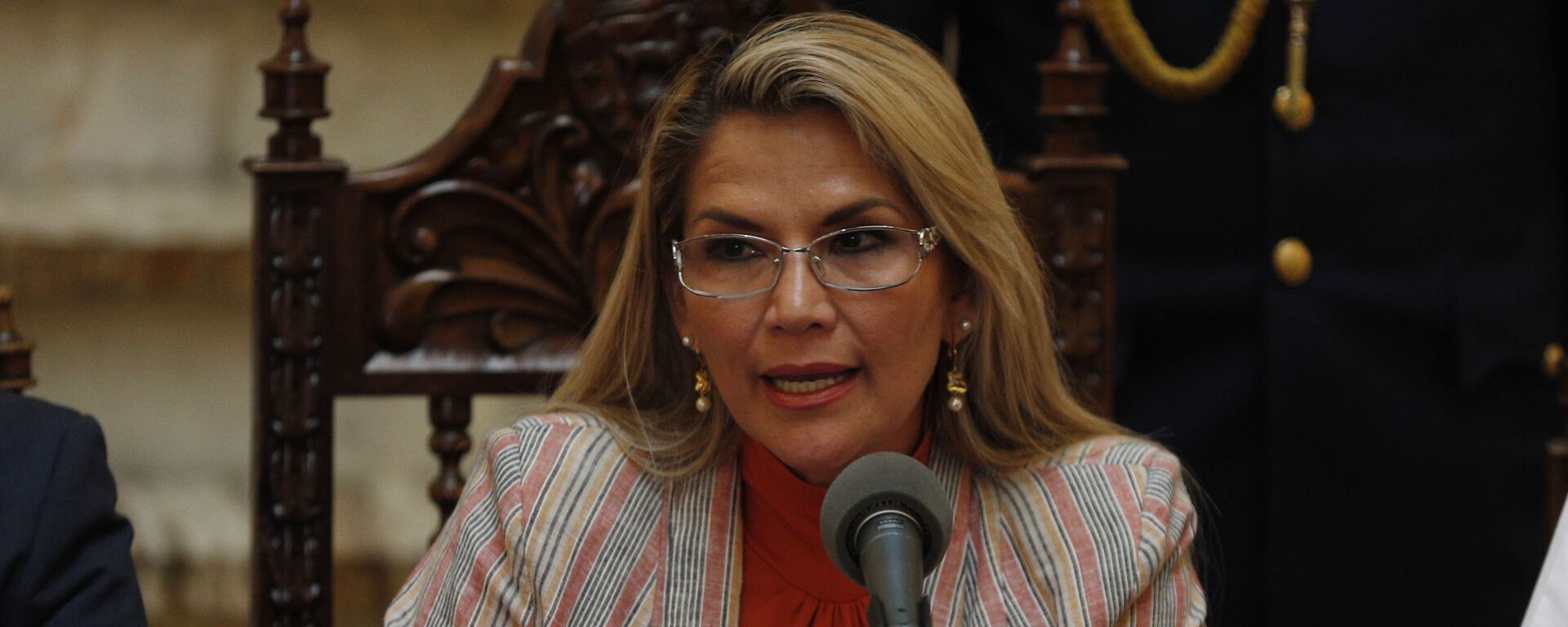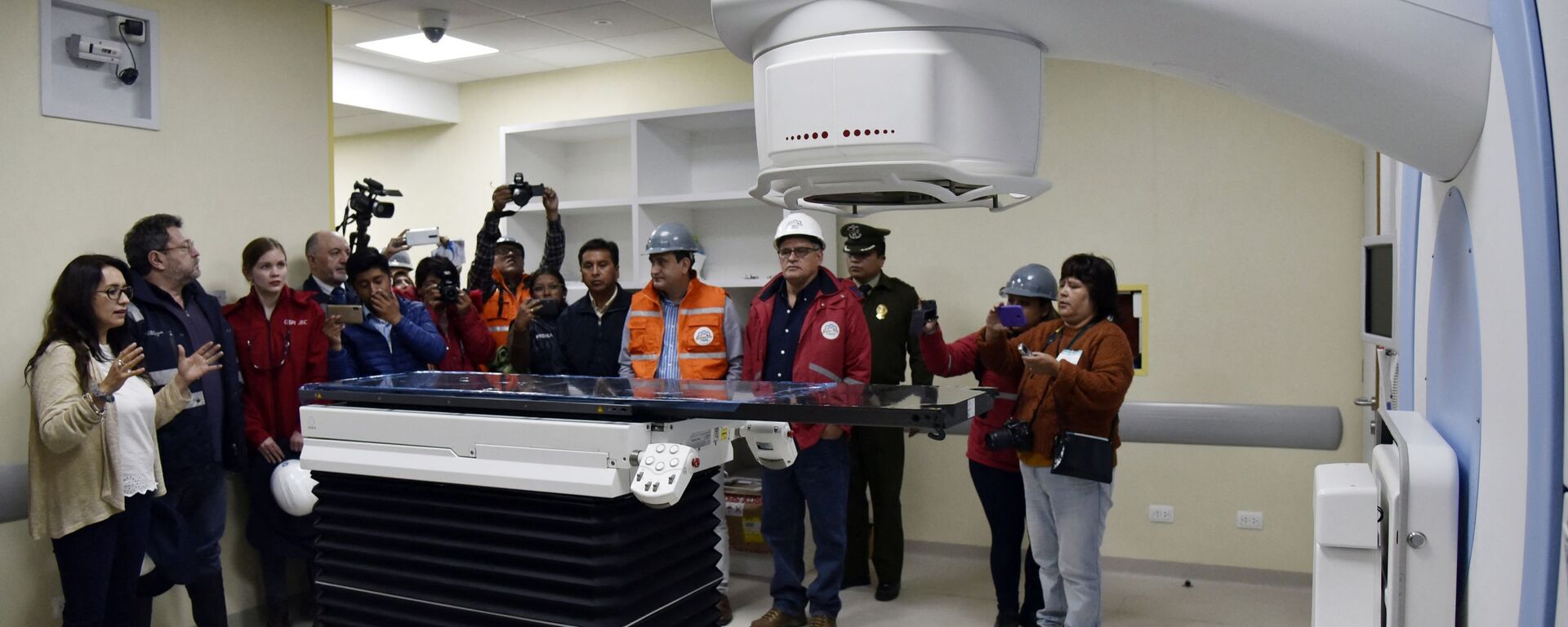https://sputnikglobe.com/20220627/german-media-fears-putin-preparing-new-raw-materials-trap-for-west-1096718461.html
German Media Fears Putin Preparing New ‘Raw Materials Trap’ for West
German Media Fears Putin Preparing New ‘Raw Materials Trap’ for West
Sputnik International
The European Union has already successfully exacerbated its own inflationary and energy price crisis by imposing partial or total bans on Russian energy... 27.06.2022, Sputnik International
2022-06-27T14:12+0000
2022-06-27T14:12+0000
2022-06-27T14:12+0000
lithium
vladimir putin
russia
bolivia
mining
https://cdn1.img.sputnikglobe.com/img/07e6/06/1b/1096718294_0:88:2952:1750_1920x0_80_0_0_ca92f1b6517a1ca32b802790f03584c9.jpg
Vladimir Putin has prepared a cunning new “raw materials trap” relying on Bolivia’s fledgling lithium mining industry, with the trap expected to “snap shut” and leave the West again dependent on Russia for its raw material needs, Welt contributor Tobias Kaufer fears.Pointing to the Latin American nation’s massive, untapped deposits of lithium, Kaufer expressed concerns over Russia’s interest in helping Sucre tap these resources, which are crucial for the production of batteries for electric vehicles.According to the US Geological Survey, Bolivia’s proven lithium reserves are the largest in the world, with the country’s 21 million tons ahead of Argentina and Chile (which have 19 and 9.8 million tons-worth of reserves, respectively, and together account for more than 30 percent of global lithium output).Russia’s success will be contingent on “the outcome of the Bolivian political crime thriller,” the contributor stressed, pointing to the raging struggle between President Luis Arce, a member of former president Evo Morales’ Movement for Socialism party, and right-wing forces backed by the US attempting to overthrow leftist forces.“This is where Russia comes in. Morales is considered a clear supporter of Vladimir Putin,” Kaufer wrote, recalling the former president’s calls for an “international mobilization to stop the interventionist expansionism of NATO and the United States” in March following the escalation of the crisis in Ukraine, and years of efforts by Sucre to shore up ties with Moscow during his presidency.Rosatom, the Russian state nuclear giant, has expressed interest in helping Bolivia tap its lithium riches, and is one of six companies which have applied for their development. Others include Lilac Solutions (a US-based start-up with investments from BMW and Bill Gates’ Breakthrough Energy Ventures), Chinese battery giant CATL, and three other Chinese companies.Along with its interest in Bolivia’s lithium, Rosatom has teamed up with Norilsk Nickel to mine for lithium ores in Russia’s Murmansk region. Last year, the company also announced plans to build a major lithium ion cell manufacturing facility in Kaliningrad, with the ambitious project hoping to begin churning out up to 4 GWh worth of batteries, or about 0.5 percent of total global demand, by 2024.
https://sputnikglobe.com/20220611/ex-bolivian-president-jeanine-anez-sentenced-to-10-years-in-prison-over-2019-coup-1096206417.html
https://sputnikglobe.com/20210610/morales-legacy-bolivian-joint-nuclear-project-with-russias-rosatom-unique-for-latin-america-1083119832.html
bolivia
Sputnik International
feedback@sputniknews.com
+74956456601
MIA „Rossiya Segodnya“
2022
News
en_EN
Sputnik International
feedback@sputniknews.com
+74956456601
MIA „Rossiya Segodnya“
Sputnik International
feedback@sputniknews.com
+74956456601
MIA „Rossiya Segodnya“
lithium, vladimir putin, bolivia, mining
lithium, vladimir putin, bolivia, mining
German Media Fears Putin Preparing New ‘Raw Materials Trap’ for West
The European Union has already successfully exacerbated its own inflationary and energy price crisis by imposing partial or total bans on Russian energy resources. Vladimir Putin expressed regret over the bloc’s decision to commit energy “suicide,” and emphasized that Russia would proceed from its own interests going forward.
Vladimir Putin has prepared a cunning new “raw materials trap” relying on Bolivia’s fledgling lithium mining industry, with the trap expected to “snap shut” and leave the West again dependent on Russia for its raw material needs,
Welt contributor Tobias Kaufer fears.
Pointing to the Latin American nation’s massive, untapped deposits of lithium, Kaufer expressed concerns over Russia’s interest in helping Sucre tap these resources, which are crucial for the production of batteries for electric vehicles.
According to the US Geological Survey, Bolivia’s proven lithium reserves are the largest in the world, with the country’s 21 million tons ahead of Argentina and Chile (which have 19 and 9.8 million tons-worth of reserves, respectively, and together account for more than 30 percent of global lithium output).
“Those with access to the deposits can have a say in the commodity’s prices and availability. Russia apparently has particularly good chances in Bolivia at the moment,” Kaufer wrote. For Europe, he warned, Moscow’s success in the lithium ‘poker game’ would make the commodity another area where the EU depends on Russia, just like with oil and gas.
Russia’s success will be contingent on “the outcome of the Bolivian political crime thriller,” the contributor stressed, pointing to the raging struggle between President Luis Arce, a member of former president Evo Morales’ Movement for Socialism party, and right-wing forces backed by the US
attempting to overthrow leftist forces.
“This is where Russia comes in. Morales is considered a clear supporter of Vladimir Putin,” Kaufer wrote, recalling the former president’s
calls for an “international mobilization to stop the interventionist expansionism of NATO and the United States” in March following the escalation of the crisis in Ukraine, and years of efforts by Sucre to shore up ties with Moscow during his presidency.
“If Moscow now succeeds in supporting the socialist’s return to power, the path to the lithium deposits would be clear. At the very least, Morales could urge President Arce to sign a deal with the Russians,” the Welt contributor believes.
Rosatom, the Russian state nuclear giant, has expressed interest in helping Bolivia tap its lithium riches, and is one of six companies which have applied for their development. Others include Lilac Solutions (a US-based start-up with investments from BMW and Bill Gates’ Breakthrough Energy Ventures), Chinese battery giant CATL, and three other Chinese companies.
Along with its interest in Bolivia’s lithium, Rosatom has teamed up with Norilsk Nickel to mine for lithium ores in Russia’s Murmansk region. Last year, the company also
announced plans to build a major lithium ion cell manufacturing facility in Kaliningrad, with the ambitious project hoping to begin churning out up to 4 GWh worth of batteries, or about 0.5 percent of total global demand, by 2024.




